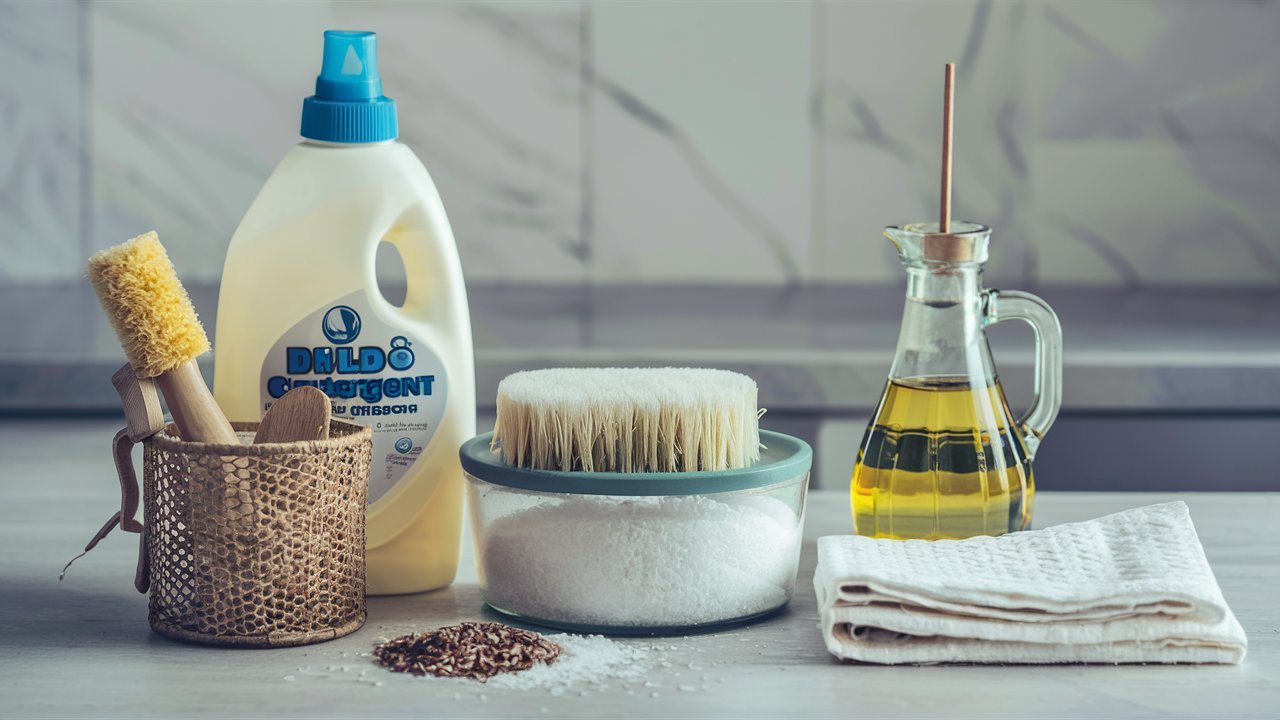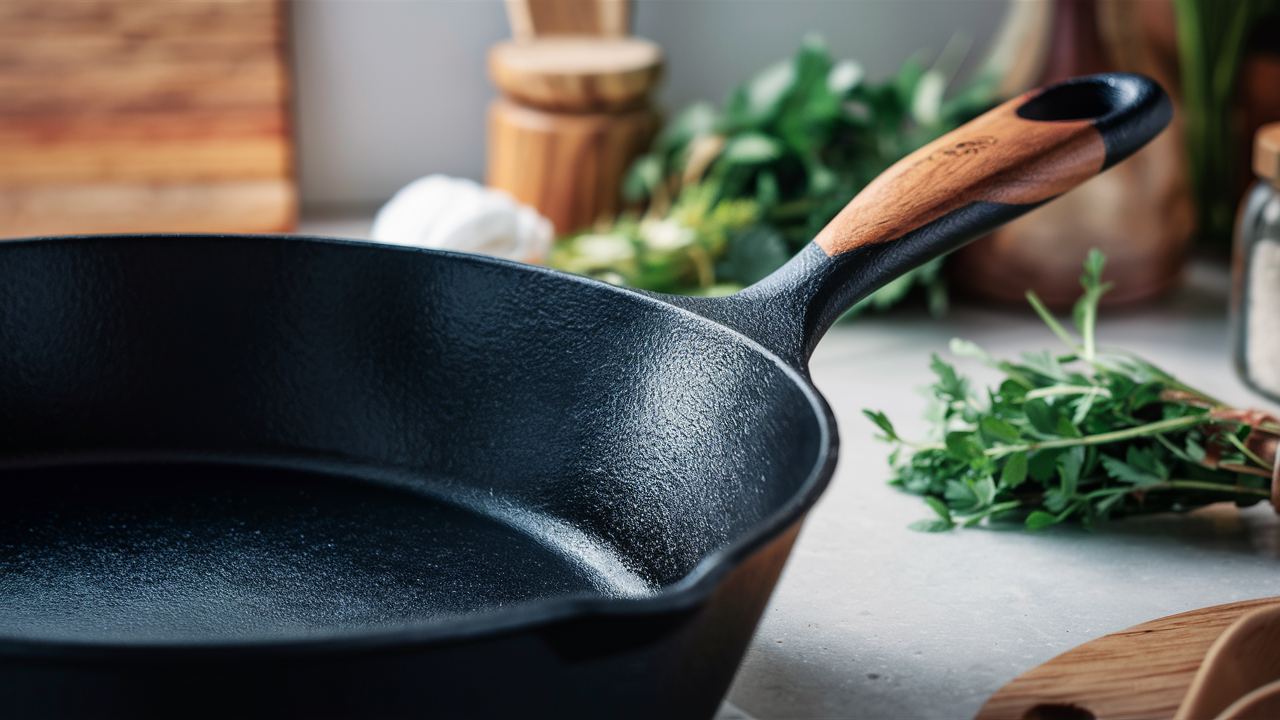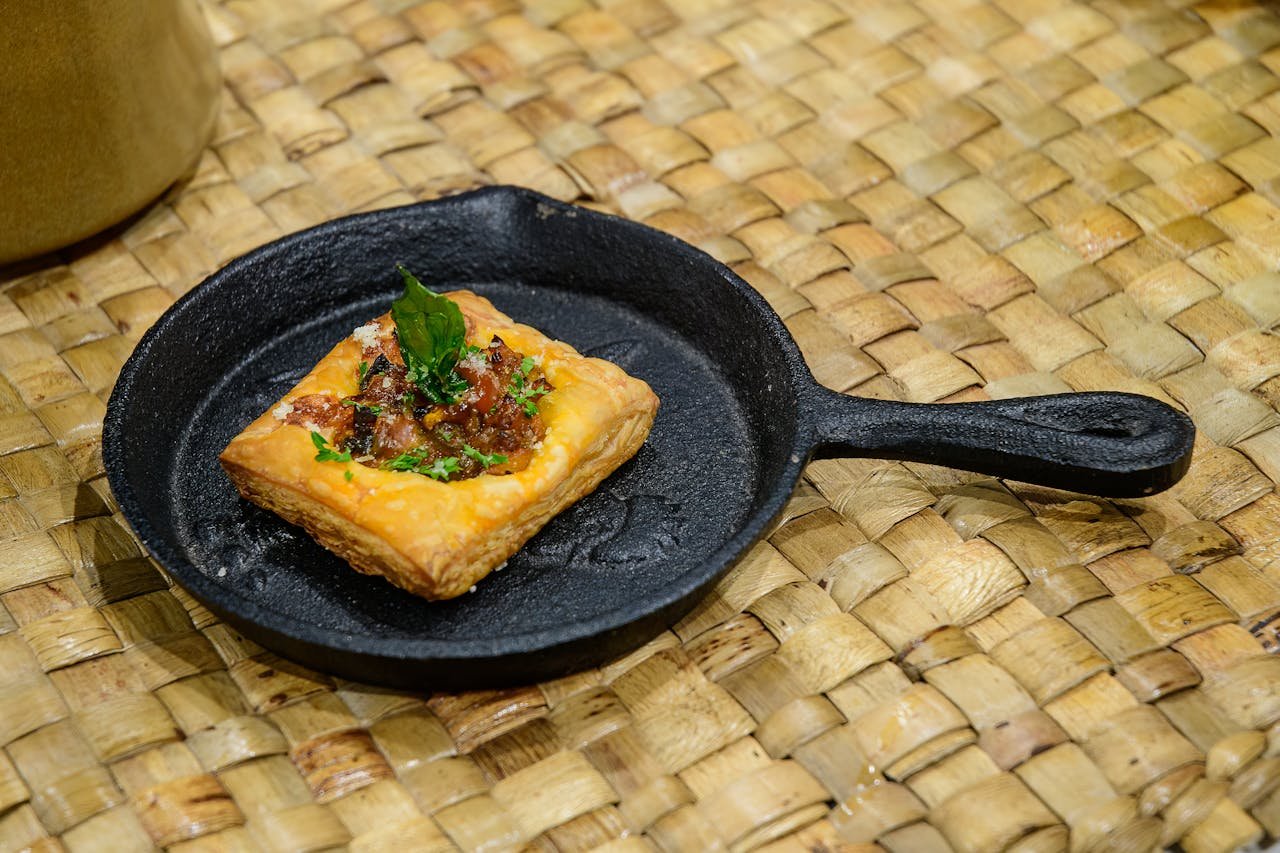Restore the shine to your cast iron skillet with these simple cleaning tips
Cleaning and maintaining a cast iron skillet is essential to preserve its longevity and cooking performance. Despite its durability, neglecting proper cleaning can lead to rust, loss of seasoning, and diminished cooking results. In this guide, we’ll explore the steps to effectively clean your cast iron skillet to restore its shine.
Introduction to Cast Iron Skillets
Cast iron skillets have been cherished kitchen staples for centuries, prized for their versatility and durability. They are renowned for their ability to retain heat evenly, making them ideal for frying, baking, and searing. However, to keep them in top condition, regular cleaning and maintenance are paramount.
Understanding the Need for Cleaning
Neglecting to clean your cast iron skillet can result in the buildup of food residues, which can turn rancid over time and affect the flavor of your dishes. Additionally, moisture left on the surface can lead to rust formation, compromising the skillet’s integrity.

Materials Required for Cleaning
Before embarking on the cleaning process, gather the necessary materials:
- Mild dish detergent
- Soft sponge or brush
- Coarse salt
- Cooking oil (such as vegetable or flaxseed oil)
- Paper towels or lint-free cloth
Step-by-Step Cleaning Process
1. When preparing your trusty skillet for its next use, it’s important to keep a few things in mind to ensure its longevity and effectiveness.
Firstly, allow the skillet to cool completely before attempting to clean it. Using harsh cleaning agents or abrasive scrubbers can damage the skillet’s seasoning, so it’s best to avoid those altogether.
2. When it comes time to clean your skillet, there are a couple of methods you can use depending on the level of residue or stains.
For a mild cleaning, gently scrub the skillet with warm water and a small amount of mild dish detergent. Use a soft sponge or brush to remove any food residues or stubborn stains. Rinse the skillet thoroughly with water and pat dry with a clean towel.
3. If you’re dealing with more stubborn residues or even rust spots, try using coarse salt and oil.
Sprinkle coarse salt onto the skillet and use a paper towel or cloth to scrub the salt into the affected areas, applying gentle pressure. Rinse the skillet again with water and dry it thoroughly.
4. Once your skillet is clean and dry, it’s time to season it.
Place the skillet on the stove over low heat to evaporate any remaining moisture. Once dry, apply a thin layer of cooking oil to the entire surface of the skillet, including the handle and exterior. Heat the skillet over medium heat for a few minutes to allow the oil to penetrate and create a protective coating. Finally, remove the skillet from the heat and let it cool completely before storing.
5. To ensure the longevity and optimal performance of your skillet, it is important to take proper care of it.
Firstly, make sure to store the skillet in a dry place to avoid any moisture buildup which can cause rust and damage to the skillet. Secondly, it is recommended to regularly season the skillet with oil to maintain its non-stick surface and prevent rust. However, it is crucial to avoid using harsh cleaning agents or abrasive tools that can strip away the seasoning. Lastly, never soak the skillet in water or run it through the dishwasher, as this can lead to rust and damage the seasoning, ultimately affecting the overall quality of the skillet.

By dedicating the effort to clean cast iron skillet, you’ll find yourself enjoying a multitude of advantages
Extended Lifespan
By providing your skillet with proper care, you’re essentially investing in its longevity. With regular cleaning and maintenance, your cast iron skillet can withstand the test of time and remain in excellent condition for generations to come. This means you’ll have a reliable cooking companion that can be passed down as a cherished heirloom, adding a touch of tradition to your culinary adventures.
Enhanced Flavor
One of the most enticing benefits of maintaining a cast iron skillet is the enhancement of flavor it brings to your dishes. As you use your skillet over time, it develops a natural seasoning—a thin layer of polymerized oil that creates a non-stick surface and imparts a unique depth of flavor to your food. This seasoning acts as a natural barrier between your ingredients and the metal surface, allowing for even heat distribution and ensuring that your meals are infused with delicious, rich flavors every time you cook.

Versatility
A well-maintained cast iron skillet is a versatile tool that can handle a wide range of cooking techniques with ease. Whether you’re frying, sautéing, searing, baking, or even grilling, your skillet can rise to the occasion, delivering consistent results across various recipes and cuisines. Its ability to retain and distribute heat evenly makes it suitable for everything from hearty breakfasts and savory dinners to decadent desserts, giving you the flexibility to explore new culinary horizons and unleash your creativity in the kitchen.
Final Notes
By cleaning and caring for your cast iron skillet, you’re not just preserving a kitchen utensil—you’re nurturing a culinary companion that can elevate your cooking experience and bring joy to every meal. So take the time to clean, season, and maintain your skillet, and reap the rewards of its enduring quality, tantalizing flavors, and limitless potential.
FAQs
How often should I clean my cast iron skillet?
It’s recommended to clean your skillet after each use to prevent food residues from accumulating and becoming difficult to remove.
Can I use soap to clean my cast iron skillet?
Yes, mild dish detergent can be used to clean a cast iron skillet, but be sure to rinse it thoroughly and dry it immediately to prevent rust.
What should I do if my cast iron skillet develops rust?
If rust spots appear, scrub the affected areas with steel wool or a scrubbing pad, then reseason the skillet with oil.
Is it okay to use metal utensils on a cast iron skillet?
While it’s best to use wooden or silicone utensils to avoid scratching the seasoning, occasional use of metal utensils is generally fine.
How do I know when it’s time to reseason my cast iron skillet?
If food starts sticking to the skillet or if the surface appears dull or patchy, it’s time to reseason it with oil.
